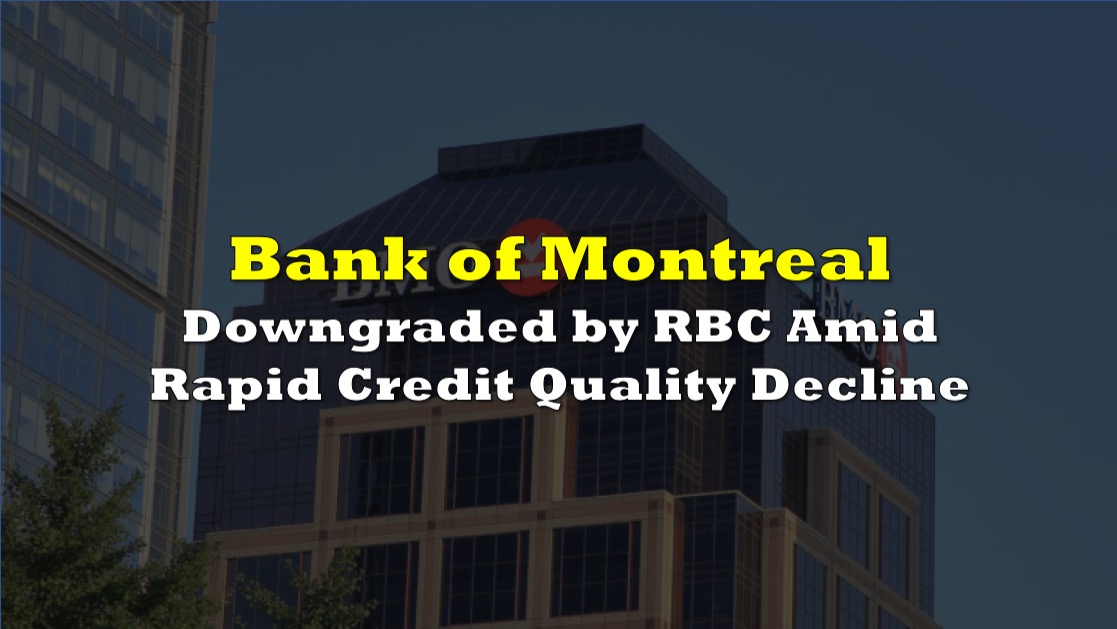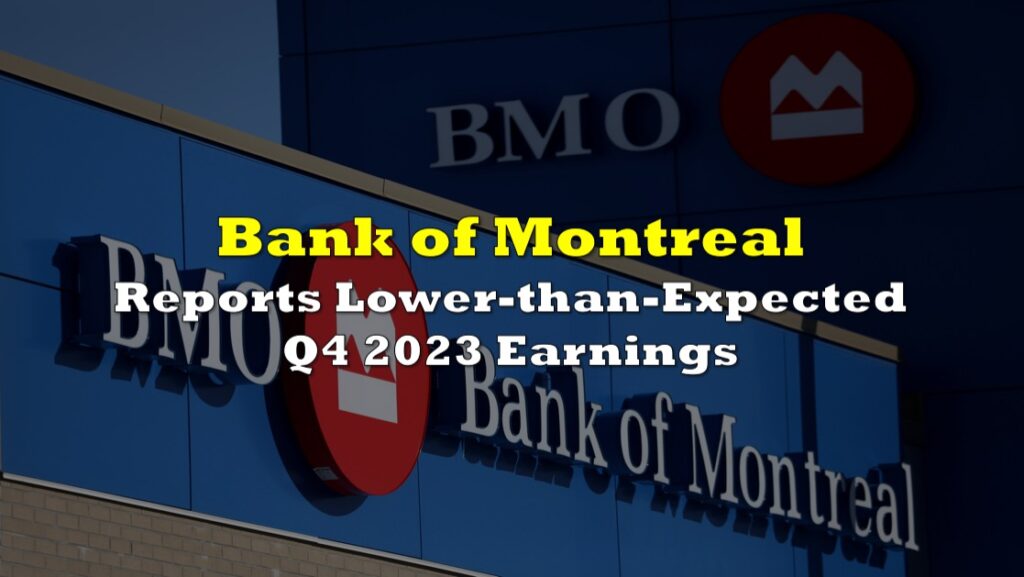RBC Capital Markets downgraded the Bank of Montreal (TSX: BMO) from “Outperform” to “Sector Perform,” citing significant concerns over its deteriorating credit quality relative to its U.S. peers. This downgrade comes amid a series of disappointing financial results and increasing provisions for credit losses (PCLs), particularly in BMO’s U.S. operations.
According to the report by Darko Mihelic at RBC Capital Markets, BMO’s credit deterioration has been more pronounced than that of its U.S. peers, despite having a similar or potentially more conservative loan mix.
“Even after normalizing BMO’s Q2/24 credit result for idiosyncratic/outlier losses, BMO’s credit deterioration appears to be occurring at a faster pace than its U.S. peers despite having a remarkably similar loan mix (and possibly more credit protection than peers),” Mihelic noted.
RBC downgrades BMO on worries about credit quality#NotableCall $BMO.to pic.twitter.com/YF6qf7oSfS
— Amber Kanwar (@baystreetamber) July 30, 2024
In their detailed analysis, RBC highlighted several key findings:
- Rising PCLs: BMO’s provisions for credit losses are increasing at a faster rate than those of its U.S. peers. The bank’s impaired PCL guidance has also been revised upwards, a move not mirrored by its peers, indicating a unique challenge faced by BMO.
- Non-performing Loans: The bank’s non-performing loans are rising at a quicker pace compared to U.S. banks, signaling deeper credit issues.
- Guidance Increase: BMO has flagged higher impaired PCL guidance for the second half of 2024, a significant departure from the stable guidance provided by other banks.
The market reacted swiftly to the downgrade. BMO’s stock saw a significant drop, closing at $83.14, down 3.45% from the previous trading day. This decline starkly contrasts with the performance of other Canadian banks, such as TD and RBC, which saw their stock prices increase by 1.63% and 1.18%, respectively, on the same day.
RBC has adjusted its earnings per share (EPS) estimates for BMO, projecting a core EPS decline to $10.83 in 2024, down from the previous estimate of $11.07. The downgrade also considers the longer-term implications of BMO’s credit quality.
“The bigger longer-term issue we see for BMO is credit quality and its impact on valuation should the perception change from relative superiority to average or below average against peers,” Mihelic warned.
BMO has faced several challenges over the past year, including the integration of its acquisition of San Francisco-based Bank of the West, which has significantly increased its U.S. footprint and exposure to credit losses. This expansion has brought additional scrutiny and pressure on BMO’s credit management practices.
In Q2 2024, BMO experienced further credit deterioration with at least one “odd” loss and several other “idiosyncratic” cases. Notably, the bank disclosed a surprise insurance loan default in its capital markets division, contributing to a higher impaired PCL ratio for the quarter.
When comparing BMO’s credit performance to its U.S. peers, RBC found that BMO’s stage 3 PCL ratio in its U.S. operations increased at a faster pace than the total net charge-offs of its peers. This trend persisted even after excluding the impact of the idiosyncratic insurance loan.
RBC downgrade pic.twitter.com/NeweEkcjYR
— Hilliard MacBeth CIM FCSI® (@hmacbe) July 30, 2024
Additionally, BMO’s gross impaired loan ratio in the U.S. rose more quickly than the total non-performing loan ratio of its U.S. counterparts, possibly pointing to broader systemic issues within BMO’s credit portfolio.
Information for this story was found via the sources and companies mentioned. The author has no securities or affiliations related to the organizations discussed. Not a recommendation to buy or sell. Always do additional research and consult a professional before purchasing a security. The author holds no licenses.









